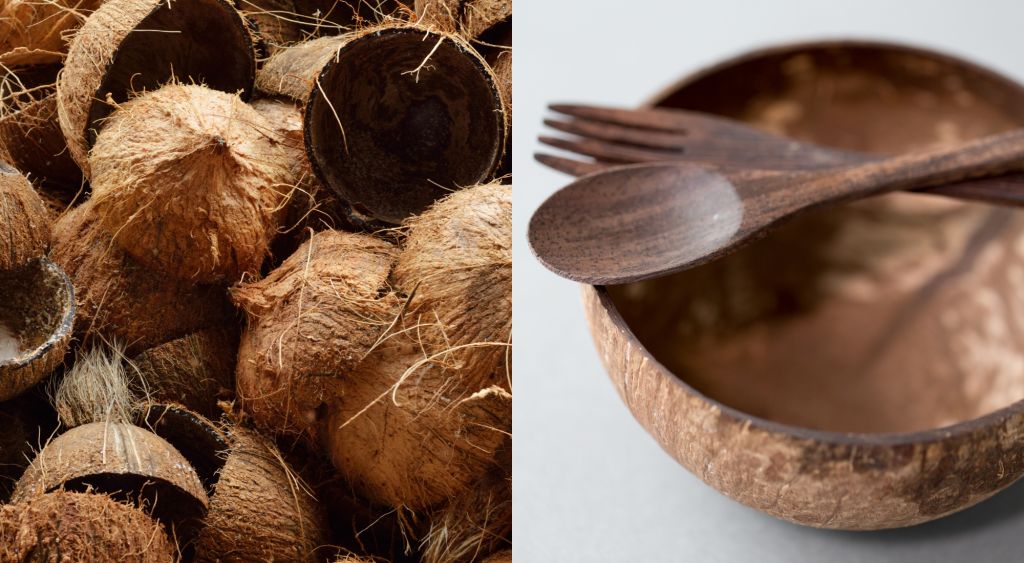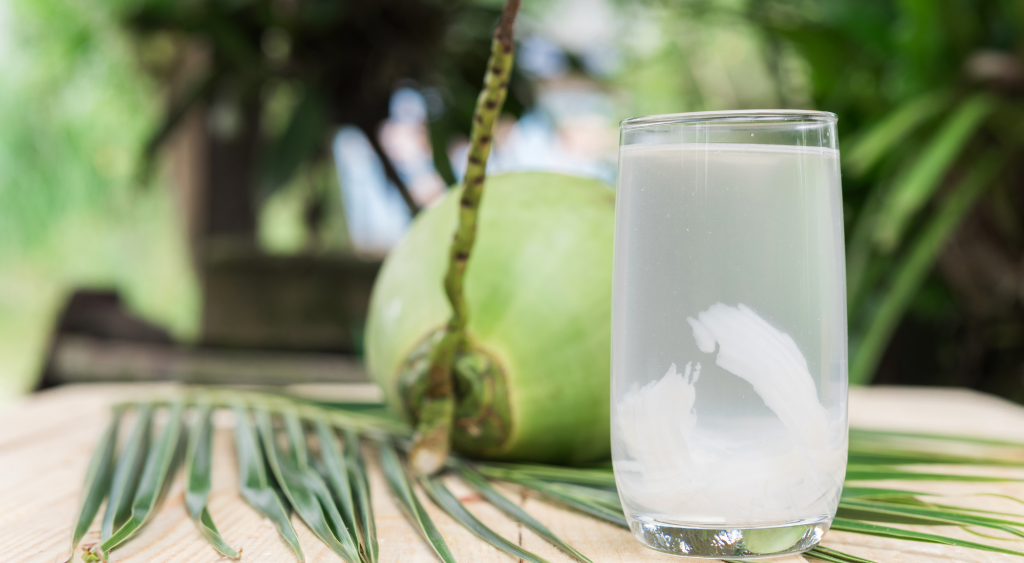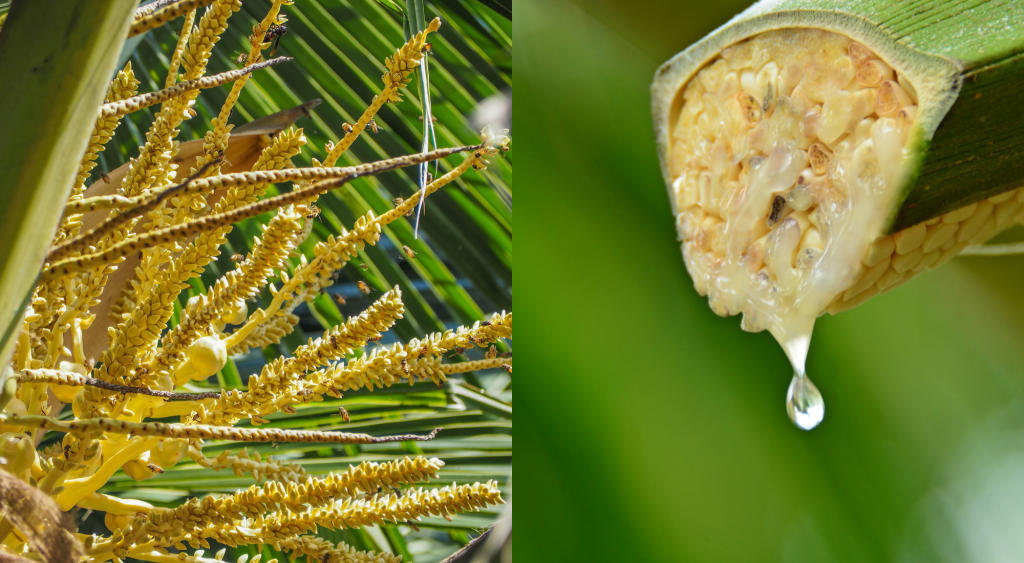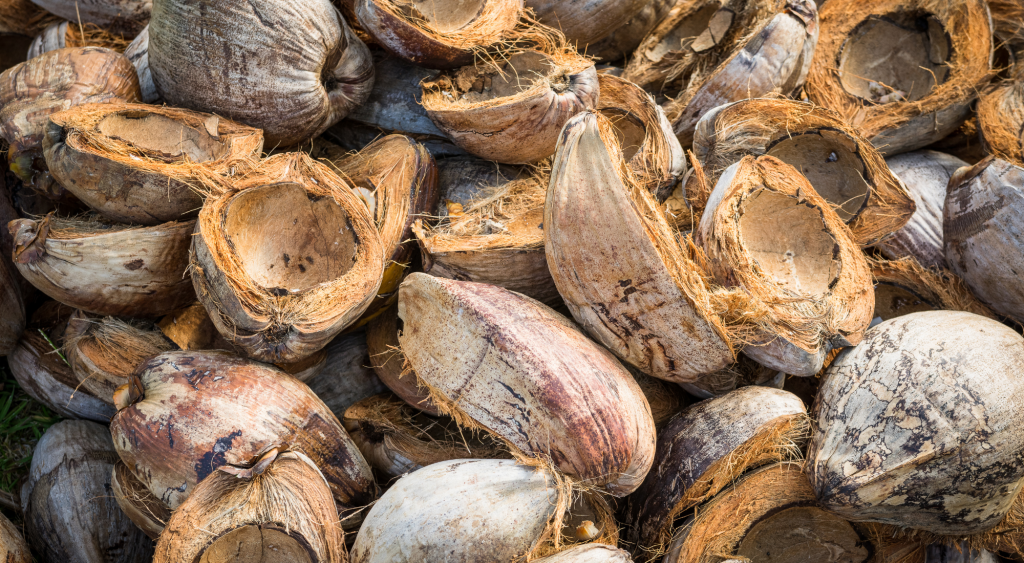Coconut: The Ultimate Zero Waste Hero Plant
Are you a fan of coconut water? Did you know that coconuts offer much more than just a refreshing beverage? We have previously explored the incredible versatility of the banana tree. Today, let’s take a look at another versatile wonder of nature, the coconut. In many Asian countries the coconut palm (cocos nucifera) stands out as a true zero-waste hero, as it provides for a multitude of uses from its roots to its leaves. So, as we close Earth Day Week, read on to discover the fascinating ways this tropical treasure contributes to sustainable living, and the importance of resourcefulness in reducing waste.
The Trunk and Husk: Building and Craftsmanship
The coconut palm’s sturdy trunk isn’t just a support for its abundant fruit, it’s also a useful resource for construction and crafting. In regions like Southern India and Sri Lanka, the trunk is used for building houses, bridges, and furniture. Its fibrous husk, known as coir, is transformed into ropes, mats, and even upholstery, adding a natural touch to homes while minimizing waste.
The Shell: Practical and Artistic
The coconut shell doesn’t go to waste either. In Southeast Asian countries like Thailand, Indonesia, and the Philippines, artisans carve these shells into beautiful bowls, utensils, and decorative items. This sustainable practice not only reduces environmental impact but also supports local craftsmanship and creativity.
The Flesh and Cream: Culinary Delights
Ah, the creamy white flesh of the coconut, nature’s gastronomic magic at its finest! From Thai curries to Malaysian desserts, coconut flesh and cream lend a delicious richness and unique flavor to so many dishes. In India, the coconut is a staple ingredient in both savory and sweet preparations too, showcasing its versatility in traditional cooking.
The Water: Refreshing Hydration
Coconut water, nature’s electrolyte-packed refreshment, is enjoyed worldwide. In Asia, from the rice fields of Vietnam to the tropical island paradises of the Maldives, this isotonic drink offers hydration straight from the source, reducing the need for plastic-packaged beverages. In coastal regions, young coconuts are harvested for their sweet, refreshing water.
The Shoots and Leaves: Sustainable Resources
Even the coconut’s shoots and leaves find purpose. In Filipino culture, coconut palm hearts (ubod) are harvested and used in salads and spring rolls. The pinnate leaves of this tall palm tree are woven into baskets, used as roofing materials, and yes, even used to make brooms, truly a testament to the amazing versatility of this simple palm.
Coconut Nectar: Divine Sweetener
Coconut nectar, the sap from the coconut palm’s flowers, is prized for its unique flavor profile which is subtly sweet with hints of caramel and floral notes. This natural sweetener is less processed than refined sugars, making it a healthier alternative that retains beneficial nutrients. Coconut nectar can be used to balance and enhance the flavors of savory and sweet dishes. To drink it by itself, it is just as refreshing tropical as the coconut water. It can also be added to smoothies or cocktails or even coffee for natural sweetness and depth of flavor.
Coconut Oil: Dual Benefits for Cooking and Skincare
Coconut oil is not only an excellent cooking oil due to its high smoke point and unique flavor but also serves as a versatile beauty product. Cold-pressed coconut oil is especially beneficial for skincare as it can be used as a moisturizer, makeup remover, or added to lotions for its nourishing properties. Its natural antioxidants and fatty acids make coconut oil a popular choice for promoting healthy skin and hair.
Beyond Cuisine: Coconut’s Versatile Legacy
Coconut’s sustainability extends beyond the kitchen. In coastal communities, coconut shells are repurposed into charcoal, providing an eco-friendly alternative to traditional fuel sources. Additionally, coconut fibers are woven into textiles and used for erosion control, showcasing the plant’s utility across many industries.
Embracing the Coconut Lifestyle
Whether you’re sipping coconut water on a tropical beach or incorporating coconut cream into your favorite curry, embracing the coconut lifestyle means embracing sustainability. From farm to table, this zero-waste hero embodies the principles of circular living—where every part of the plant finds purpose and value.
If you are looking for responsible travel options in Asia, let us be your guide. Secret Retreats crafts off the shelf and tailor-made tour packages, and offers great deals and multi-country tours in Asia to suit many travelling styles. Contact the travel team today on dream@secret-retreats.com to start planning your dream holiday in Asia.










